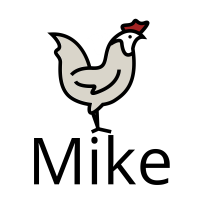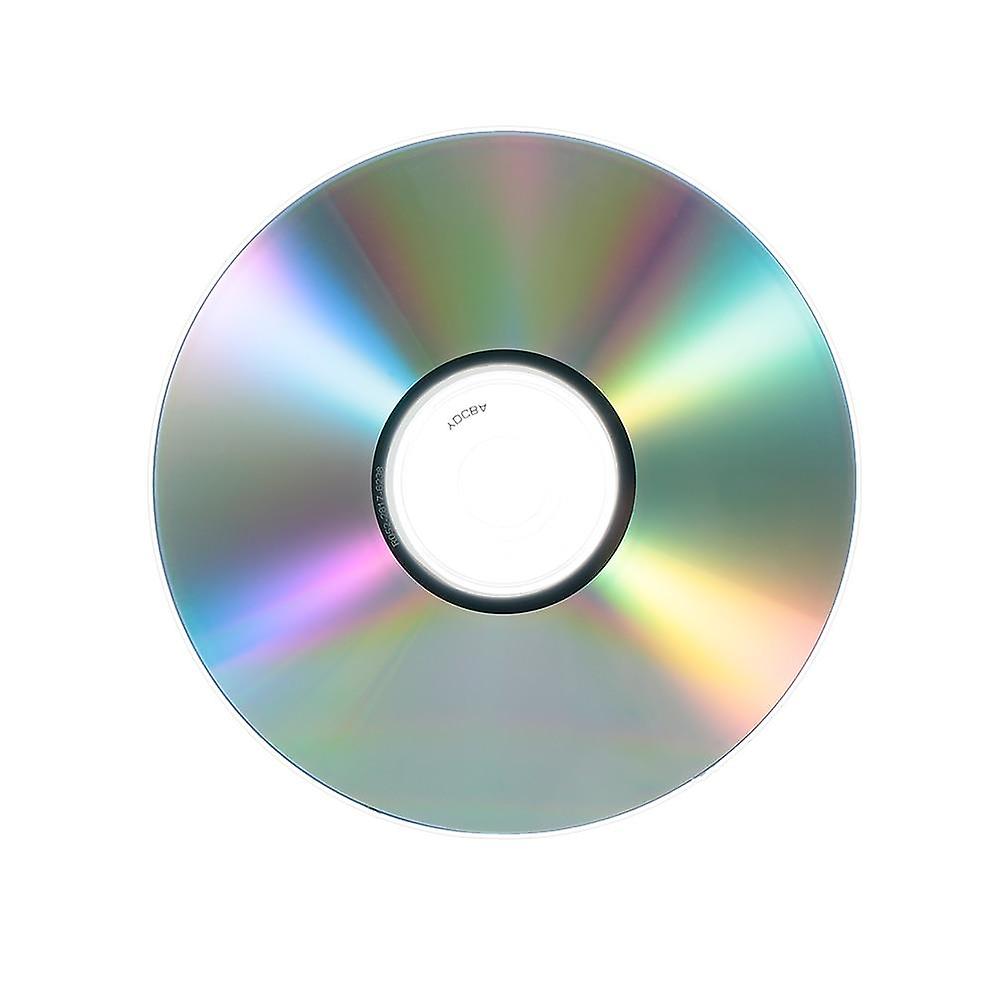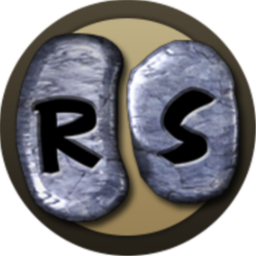

How is Borderlands selling so well? I got the impression it was a flop
Also find me at @Notnotmike@beehaw.org and @NotNotMike@notnotlemmy.com


How is Borderlands selling so well? I got the impression it was a flop
Oh nice! I’ve kept the Xbox game bar running so that I can make these clips so it will be nice to ditch that bloated mess - no need for two overlays


Oh neat - I’ve been waiting for this UI for a while so I’m excited to try it out. I don’t think it will impact me much beyond the entry swapper though.


I was thinking the ghost tower or cave music from R/B/Y
Yes I think that’s the correct interpretation
Just added this to my browser this morning, coincidentally! Not sure what thread it was, but I thought it was this one. Thanks for the link though, it’ll be a big help
Thank you very much! I wasn’t aware of these guidelines so it’s interesting to read
I think the notability is a little hard to define, so I could see some discussion happening, especially about more minute details like individual items in games. But it seems like, based on the existence of a Krillin page, that there is at least some precedent for somewhat broader topics
I see what you’re saying, but also I don’t think those analogies are necessarily fair. I don’t think putting Yoshi’s birthday on Wikipedia instead of Yoshipedia is quite as critical as a central bank failure
We’re on Lemmy, which is an aggregation source just like Wikipedia. Some knowledge is only stored here, while other knowledge is an external link. It’s not a bad thing to be a central point of information as long as it is a community-driven process with high levels of transparency, like Wikipedia.
Lemmy, however, works differently from Wikipedia or Reddit in that multiple services work together to be that aggregation source, which is great, and Wikipedia doesn’t have that, which is not great. So that of course could be better in an ideal world, and I would bet there is a federated Wiki service already out there
But, I’m not talking about life changing information here, I’m talking about what happened to Krillin in episode 700 of Dragon Ball Super, I think it’s okay if that information lives in one central location - especially since you can always just watch the episode again to verify
Do you happen to know where in the rules it would list the “level of relevance”. I did a cursory read through of the content guidelines but I didn’t see anything that would necessarily exclude descriptions of specific video game content, levels, or assets, but I’m no master at Wikipedia - I can’t say I’ve contributed much beyond donations.
Also I did mention those unique features some wikis have. For example, the Old School RuneScape Wiki has some really great calculators, maps, and data collectors, so I’m very happy with those. But for less popular ones where nobody is putting in the work to make the wiki exemplary feels like we may as well save time and not give Fandom money by using Wikipedia
And look and feel I would say is good unless it’s a fandom, and then all the look and feel in the world doesn’t justify those ads
One thing that recently had me pondering was why do we need separate wikis, why not just add the information to Wikipedia? Unless your wiki has some feature Wikipedia doesn’t support, it just seems to provide a background image and ads.
For example, I was looking up some Dragonball information, and their wiki was really sparse and didn’t answer my question. So I randomly tried Wikipedia and it had all my answers
My only guess is some Wikipedia usage rules that say not to but I find that unlikely


Damn they went hard on Copilot on this release


Oh awesome! I’m looking forward to this one
White.
I think because when I was young I associated it with angels and purity and I wanted to be a good person.
Now I just think it looks crisp and clean and it’s always been “my” color in games
So I give you articles that are not only referencing the exact version of addiction you want and mention a support group that you keep referencing and you dismiss them because it’s inconvenient. I fit the references to something you might find convincing. I didn’t find sources that convinced me I found sources that might convince you.
But please, provide your own evidence, as you referenced earlier. I have provided mine, and I await yours.
You have literally said nothing at this point beyond referencing outdated version of the manual and anecdotal evidence.
Come on, now you’re just being rude and dismissive. I’m trying to come together here and come to an understanding.
I have evidence to support it
What, where? You’ve sited the DSM-V and anecdotes, the former disagrees with you and the latter is opinion
Cite one.
Here’s two:
News article using the term “addiction”:
Inside Caffeine Addicts Anonymous: ‘It Controlled Me Enough’ which also mentions a support group, like the ones you reference: Caffeine Addicts Anonymous
Scientific article using the term “addiction”:
Caffeine Intoxication and Addiction
Whether or not you agree with them, the point is that it is commonly used.
Avoiding using the word ‘addiction’ is does not make it scientifically irrelevant
No the DSM-V did that
Science says caffeine isn’t addicting
Science doesn’t use the term, it is antiquated and no longer scientifically relevant. Science says that caffeine does not cause substance use disorders.
Numerous articles still use the word addiction in them
Numerous articles define caffeine as addictive as well
Society says caffeine isn’t addicting otherwise it wouldn’t allow children to consume it
You’re so close to understanding what I’m wanting from this thread and this conversation. Caffeine is a problematic drug that we take too lightly. I do not believe we should be giving it to children, nor do I believe adults should use it frequently.
But, to your point, society does say that caffeine is addicting (we’re in a thread that is sufficient proof of that) but society agrees that the “addiction” is minor enough that it is not a big deal. I’m also sure many people would agree that sugar is addictive and yet we feed that to kids more than anyone else.
People that have had at least 2nd hand experience with actual addiction think caffeine isn’t addicting because JFC they KNOW better
The “addictiveness” of one thing being more severe does not mean a less severe substance cannot also be “addictive”. Because a gun only kills one person and nuclear warhead kills millions does not mean the gun cannot be described as lethal.
You still haven’t shown anybody who’s opinion is worth listening to that thinks caffeine is addicting
Because I don’t work in opinions, I work in science. The DSM-V says (and I can’t believe I’m stating this for a fifth time, I’ll put it in capitalized letters to make sure you see it) ADDICTION IS NOT A SCIENTIFIC TERM, so nobody will say that anything is addictive in scientific contexts because that would be a scientifically invalid statement.
Karens sitting at a brunch table playfully giggling about their lack of self control over their love for cafe mochas…
Nice, condescension and sexism. Please, I want to have a civil conversation with you about this topic, you do not need to go disparaging me or others to make your point.
You [argue]… the DSM matters…
You stated the DSM matters. You started the conversation with it.
withdrawal is not the definition of addiction
No, it is not, because “addiction” is not defined in the DSM-V besides a note about how the DSM-V does not use the term.
Religion shouldn’t be listened to
In scientific contexts, yes. Absolutely I believe that.
that everything besides your opinion doesn’t matter is a you problem.
I am quite literally citing sources that are not my opinion but are instead current scientific reality or common interpretations. My opinion just happens to agree with the science and I am not bothered by non-scientists using a non-scientific word in whatever way gets the conversation going. I am also citing the opinions of 90% of individuals in this thread - they seem to agree that caffeine is addictive.
I really want to come to an understanding between us and find some place to land.
I understand your perspective - you don’t want people to use a term that you feel has a specific definition because you feel that it trivializes your experience - and I think it’s not an unreasonable thing to want. I don’t want to trivialize those suffering from substance use disorders.
But my perspective is that people are using “addiction” as a communication tool in a non-scientific context and that there is no harm in that. It gets the point across and we are able to successfully communicate about the topic. Sidelining the conversation with corrections on terminology is really not helpful, especially when that terminology is no longer scientifically relevant.
We should be discussing the impacts of caffeine on our bodies and our society, not whether or not one word is better than the other.
I don’t know how to word this any differently, so I think this conversation is just about done.
You keep bringing up how science says caffeine isn’t “addicting” despite you yourself being the one to point out the DSM-V where they explicitly call the word out as not defined in the DSM-V. So for the fourth time: “addicting” is not a scientific term.
Just because it was preciously referenced in a 24+ year old version does not make it still scientifically relevant. It is not a scientific term any longer, and you can stop treating it like it is.
Meanwhile, in the DSM-V, caffeine is associated with withdrawal symptoms. Symptoms you yourself have described and experienced. So we can both agree caffeine use causes withdrawal.
So because (1) “addiction” is not a medical term and (2) caffeine causes withdrawal symptoms when usage is stopped it is therefore more than fair for people to define it as addicting in a nonscientific context like the one we’re in. We should reference science, sure, but science has no opinion on whether caffeine is “addicting” because, again, it’s not a scientific word.
Again, you’re arguing semantics. This is arguing “gif” vs “jif” at this point. You’ve given up on medical sources like the DSM because they don’t support you so now you are just doubling down with no basis in fact.
Hopefully, we see each other around on the Fediverse and maybe even have another discussion, but one that is more beneficial for us. This one seems to be just spinning our wheels. Good luck to you
I’ve said this three times now, but: There is no scientific definition of addiction, so you would have equal trouble finding meth described as addicting.
The post title concerns the common usage of the term, this is not a medical forum. A guy just had a question. You’re the one who, incorrectly, brought up addiction as a medical term
Okay, so why bring up the DSM if you don’t care what it says? You seem to be missing my point.
Caffeine is addicting in the colloquial sense that you want it when you don’t have it. It is not a cause of substance abuse disorder.
If Caffeine was addicting you think it is okay for children to consume it.
I never said I did and, in fact, I don’t think it’s okay. I’m an outlier in that fact and that’s my concern and the reason I’m even in this thread.
If Caffeine was addicting it would be labelled a Substance Use Disorder, it isn’t
By definition in the DSM, neither caffeine nor meth are addicting. So this is a nil point
Again, addiction means nothing here except a colloquialism. It is no longer a medical term. If you have a source for a strict definition in a scientific sense beyond the DSM I’d be happy to adjust our conversation accordingly
You cannot use an outdated version just because it fits your argument better. The nomenclature was changed, so adapt
I am respecting addicts
By calling them “addicts” you are immediately not respecting them, per the negative connotation and the superior alternative term which we’ve discussed
Trivializing the word such that caffeine counts demeans those that suffer actual addiction, and is the problem here
And sidelining a conversation about a drug to argue semantics is better? Nobody in this thread will tell you caffeine is as bad as nicotine.
My interpretation here is that you suffer from substance abuse, in the past or currently, and you feel your experience is being trivialized. If that’s the case then say that instead. Don’t argue about definitions out of the DSM, just state cleanly and kindly that you feel that “habit” is a better term and let the conversation about the topic continue. Don’t be so aggressive and self-righteous about it and people will be more inclined to listen and change.
And if you don’t suffer from substance abuse then don’t get outraged by pedantics on someone else’s behalf…
Article mentions the Bill of Rights, and I haven’t really looked at that since middle school, so I wanted to brush up.
Emphasis mine.
Definitely a very short passage and I’m no lawyer. I could see arguments for how this does not disallow a state to mandate a religious text be included somewhere.
However, I’m a staunch believer in the separation of Church and state so I’m leaning more towards the spirit of the law rather than the letter here - seems clear that religion of any kind should never be mandated
Also I cannot believe any state congressional time was wasted on such a pointless rule. I would be astounded if this had any measurable effects on any child beyond them remembering a few more of the commandments than their peers. But morally I imagine there will be no difference